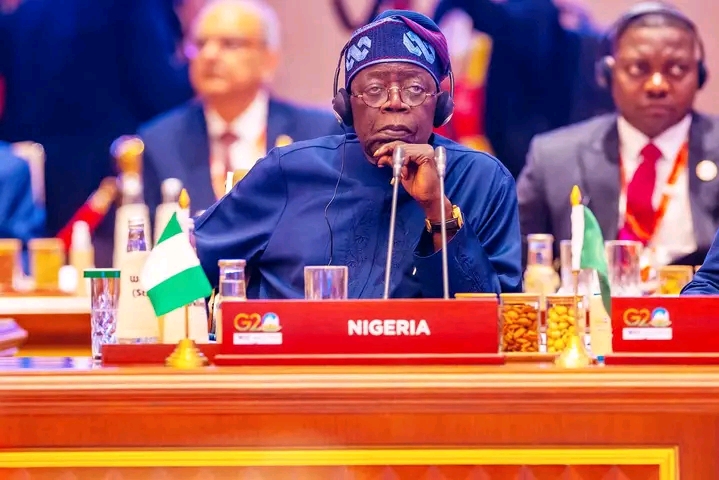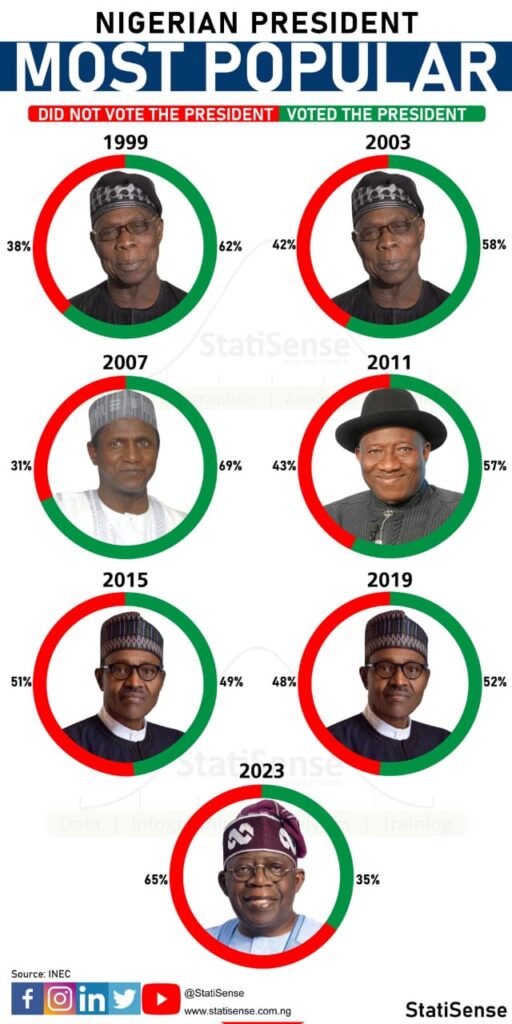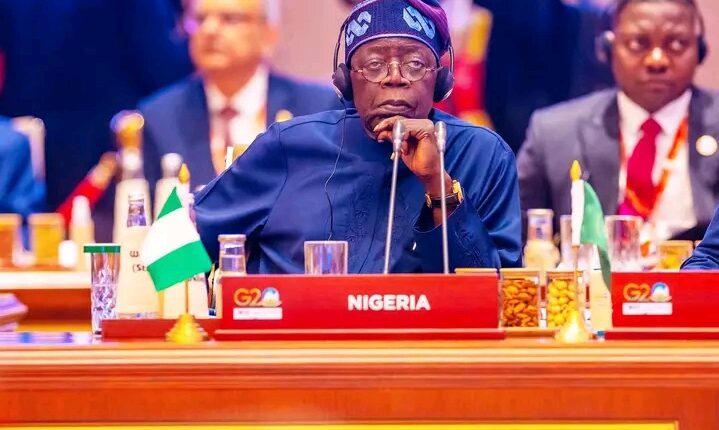Why Tinubu is the least popular president since 1999
Nigeria returned to democratic rule in 1999; since that period till now, there have been five presidents of which the incumbent Bola Tinubu is the least in term of popularity.

The military relinquished power in 1999 and Olusegun Obasanjo of the People’s Democratic Party won the election and took oath of office on 29 May, 1999.
He beat his closest rival, Chief Olu Falae of the Alliance for Democracy. Obasanjo got 62% of the total votes cast in the1999 election. He was able to sustain his popularity to a large extent by grabbing 58% of the votes in 2003 election. He was the first president to win a second term in office.
The late Umar M. Yar’adua got 68% of the votes in the 2007 presidential election. He beat Alhaji Muhammadu Buhari in the election. The late former president actually agreed that the election that brought him was not transparent.
His vice, Goodluck Jonathan took over from him in May, 2010. Former President Jonathan presented himself for another term in 2011 and he got 57% of the votes.

There were violences across the country leading to deaths and destructions of properties. Muhammadu Buhari, who had been looking forward to leading Nigeria as a civilian president got 49% and 52% in 2015 and 2019 respectively.
The 2023 general elections could be the most interesting. Three key candidates contested for the job apart from the NNPP’s candidate Rabiu Kwankwaso. The winner, Bola Tinubu could manage to grab paltry 35% of the votes.
The implication is that only 3.5 out of 10 Nigerian voters cast their votes for him. That also means a minimum of 6 out of 10 voters would prefer another person to lead the country.
There was no landslide victory in the election for Bola Tinubu. The election results were challenged at the tribunal by Peter Obi (LP) and Atiku Abubakar (PDP). They alleged malpractice and irregularities in the poll even though the electoral body introduced technology for transparency.
The Independent National Electoral Commission argued that it’s now difficult to rig elections in the country. Then, it may be safe to say that Tinubu became president under a transparent system. Hence, he couldn’t score up to 40%.
Follow us on social media


